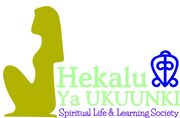0 Comments
Hotep,
The Temple of the Seven Principles started mediation on August 11 and had a special session on August 4. I'm a two-year-old meditator and I still consider myself as new to it. The meditation session is for an hour & a half and during the session the instructor introduces three exercises: mind clearing, breathing and focus. Each exercise is 10 minutes with reflections after each exercise. Now, I want to share with you my experience with the group mediation. This was my first group meditation in the temple and I experienced something different from each session. Before I get into my experience I will explain each exercise. Mind Clearing For mind clearing all were instructed to get in a comfortable sitting position, hear and feel everything around and inside without reacting to it. Breathe naturally. Breathing All were instructed to only pay attention to the breathe and feel it throughout the body. Breathe naturally. Focus All were instructed to focus on one principle from the seven principles: unity, self-determination, cooperative economics, collective work and responsibility, creativity, purpose, faith. All were encouraged to focus on Nia (purpose). Our purpose at the temple is to return to the source, to the way of maat (divine and social order). As I said before my experience on both days were interesting. On August 4, as I started the third exercise, I began to hear whispers as I focused on purpose. The whispers that were in my head came into the room as if they were right there. I heard a male voice ask to mount me and my higher self said no. After the meditation we reflected on our experience and as I spoke about mine a woman sitting next to me said she heard voices in the room and she thought it was mine. My first thought was could she hear my thoughts and am I vunerable during meditation towards other peoples energy. On the second day the instructor did a exercise I would encourage all to do. The instructor referred to this exercise as a way to check yourself. Check Yourself Test: 1. Fold a sheet of paper vertically in half 2. On one side write 5 - 10 things you know about yourself 3. On the other write 5 - 10 things you want to improve about yourself 4. Do not look at the other side of the paper as your writing your 5 - 10 5. Open the paper and you should see that what you want to improve about yourself will match with what you know about yourself. This was my first time doing this and I was glad I experienced it. During this demonstration the instructor asked us to only write 5 for both sides. I wrote the following: Things I know about myself Things I want to improve 1. I'm on the fence 1. Heal my body 2. I have good ideas and little or no support 2. Communicate better 3. Want to be productive 3. Go out more 4. I like people 4. Be cool 5. I love my family 5. Listen My concentration this week has been getting support because I don't want to and can't succeed if I'm doing all the work alone. My solution when I checked myself was to communicate better. I pray this reaches you in good spirits. Hotep; I see the divine in you as you see in me Our next meditation session is: Moon's Day Sept 1 - 6254 [2014] |
|||||||||||||||||||||||||||||||||||||||||||||||||||||||||||||||||||||||||||||||||||||||||||||||||||||||||||||||||||||||||











 RSS Feed
RSS Feed
